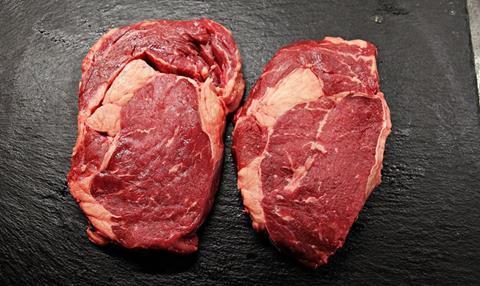Increased cost of living pressures this autumn could lead to consumers missing out on key nutrients, including Vitamin B12 and iron, due to “a lack of balance in their diet”, research by the Agriculture and Horticulture Development Board (AHDB) has found.

The research revealed that one in three agree that the current cost of living challenges have made their diet less healthy overall. A study by Public First also found that more than one in four consumers are eating less meat to try and save money.
AHDB’s ‘We Eat Balanced’ campaign, which returns on 7th September, aims to highlight to consumers the importance of enjoying a balanced diet, including red meat and dairy, some of the most nutrient dense foods available.
Dietician Priya Tew and food security specialist Professor Nigel Scollan are supporting the campaign, along with NHS doctor and author Dr Emily MacDonagh.
Natural sources of key nutrients
Priya Tew said: “Along with dairy products, meat is also a natural source of B12, which is an essential nutrient that helps not only to reduce tiredness and fatigue but also to protect our immune system.
“B12 can also not naturally be found in foods of plant origin which could become more challenging for those facing increased pressure on their household food budgets.”
Professor Scollan, a director of the Institute for Global Food Security and professor of Animal Science at Queens University, Belfast, added: “Meat contains up to nine micronutrients, some of which can be difficult to obtain from other food sources and particular fractions of the population may be exposed to deficiencies including younger females (iron) and the elderly (Vitamin B12 and protein – sarcopenia).
“The ‘We Eat Balanced’ campaign highlights the importance of eating a balanced diet and, within it, focuses on the value meat and dairy can play in people’s diets and emphasises their role in providing natural sources of these key nutrients.”
Tackling iron deficiency
According to National Diet and Nutrition Survey (NDNS) data, almost half of girls and young women aged 11 to 18 suffer from low intakes of iron, with one in 10 living with low iron status. Low intake of iron affects a quarter of young women aged 19 to 25 years old while one in 20 have low iron status.
Dr Emily MacDonagh said: “The fact that so many women and girls are already affected by low iron levels or suspect they may be iron deficient is worrying and the symptoms - including tiredness and lack of energy - can impact daily life.
“Eating a balanced diet is key to helping us get the wide range of nutrients that our bodies need, and there are plenty of cost-effective options available too.”
Cost-effective healthy food
AHDB’s director of marketing Liam Byrne said that the ‘We Eat Balanced’ campaign highlights to consumers some of the ways they can maintain a healthy, balanced diet despite having additional pressures on their shopping budgets, for example through the expected rise in energy prices.
He explained: “The increasing cost of living is likely to mean more people becoming reliant on lower cost foods which tend to be calorie dense and nutrient poor, further increasing diet-related disease.
“We aim to shine a spotlight on some positive food choices that consumers can make, when doing their weekly shop.”
This story was originally published on a previous version of the Meat Management website and so there may be some missing images and formatting issues.












